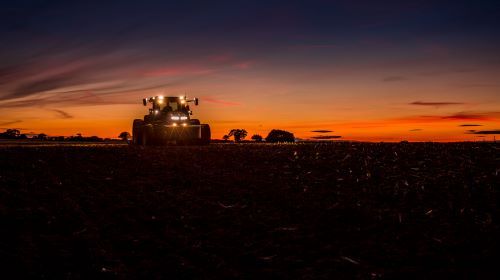
18 November 2022
Defra has set out how the Environmental Land Management Schemes (ELMS) will continue. The Director of the Future Farming Programme at Defra, Janet Hughes, and Defra Minister Mark Spencer explained that ELMS, the new post-Brexit payment scheme to support farms and replace EU subsidies, will be maintained and the current review will fine-tune it. Uptake of the soil standards of the Sustainable Farming Incentive (SFI), the first of the ELM Schemes, is going to plan with 1,500 farmers signed up.
COP27 has been seen as a key historical junction for soil health to be considered globally as part of wider environmental issues. UN agencies including the Food and Agriculture Organisation (FAO) have highlighted that over 50 million people are close to famine globally, and that sustainable farming practices that give rather than take from soils, are critically in demand.
As COP27 is still underway, the British Soil Science Society (BSSS) released a short-policy report on potential global soil policies. It includes the SSA co-director, Ellen Fay, highlighting the need for consensus from the scientific community on a common framework (metrics, language and classification) for soils. The report partly comes from policy sessions at the World Congress for Soil Science held in Glasgow earlier this year.
The Soil Association has highlighted the need to protect environmental rewards for organic farming. With organic farming improving soil health and increasing soil carbon by 44% more than other farming according to the Soil Association, there is a need for certainty over the future of government support for organic farms, with the expected ending of Countryside Stewardship by 2024.
A minimum set of standards for soil carbon sequestration and certification are expected to be set out in a law on carbon removal by the EU Commission. Through the law, EU nations will be free to set their own standards and policies around carbon removal including through soils, but they will need to meet minimum EU standards.
The Office for National Statistics has shown that agricultural greenhouse gas emissions in the UK have decreased since 1990. GHG emissions through changes to land-use, including carbon dioxide removal in carbon stocks like cropland, forests and gains in soil organic matter, decreased the most. However, cropland continues to produce more carbon dioxide than it removed in 2020.
A project funded by the Scottish Government to look at how much carbon is stored in Scottish farm soils, has found that livestock grazed soils are close to maximum carbon storage. The soil carbon content of land used for sheep and beef farming is close to reaching the level where the soil can not absorb more carbon than the amount of carbon that is produced by farming on those soils.
New research has looked at how to grow rice sustainably in soils. Rice often requires a large amount of phosphorus fertiliser which can pollute soils and waterways. The research found that by using silicone to stick to soil particles, phosphate is prevented from sticking to soils allowing it to be taken up by rice plants, leading to less phosphate fertiliser needing to be used.